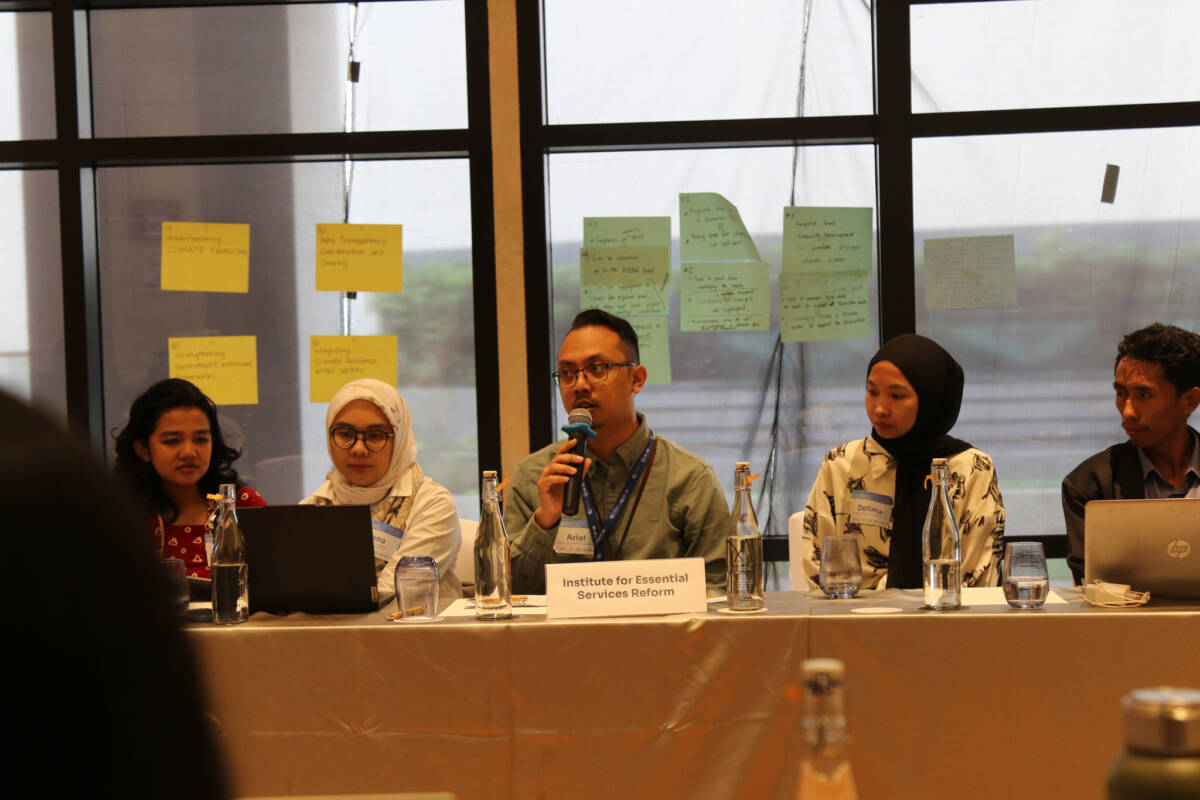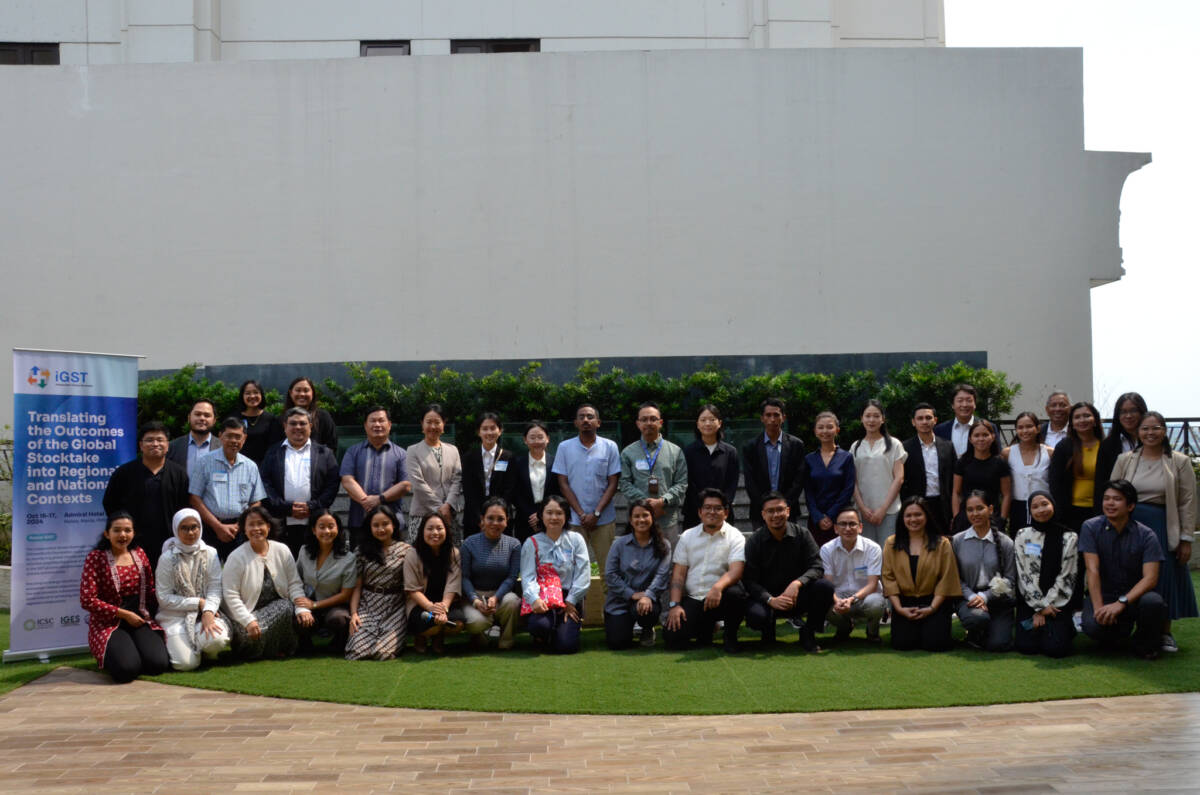Manila, October 17, 2024 – In 2015, the world’s nations came together at COP21 to agree on the Paris Agreement, which included a commitment to hold the Earth’s temperature rise below 1.5oC. As a follow-up, the first Global Stocktake (GST) was held at COP28 as a mechanism to assess countries’ performance in meeting their climate change targets. Based on the GST results, it was found that the earth’s temperature will reach 2.1 – 2.8oC if all countries implement their climate targets. The findings will serve as a reference for the government to improve its climate action going forward.
To support the implementation of the GST results, the Independent Global Stocktake (iGST) was established, a consortium of civil society organizations that monitors, evaluates and supports the climate actions of their respective governments in fulfilling their Paris Agreement commitments. iGST has several regional hubs around the world, including in Southeast Asia. The Southeast Asia Hub (SEA Hub), led by the Institute for Climate and Sustainable Cities (ICSC) from the Philippines and the Institute for Global and Environmental Strategies (IGES) from Japan. iGST SEA Hub aims to provide a platform for Southeast Asian organizations to voice their input on their governments’ climate policies. The Institute for Essential Services Reform (IESR) joins the iGST SEA Hub as a member.
By 2024, the iGST SEA Hub will have worked with Southeast Asian organizations to align national and regional climate policies with GST outcomes, so that future climate policies are well informed by the outcomes . As a culminating activity, the iGST SEA Hub held a workshop titled “Translating the Outcomes of the Global Stocktake into Regional and National Contexts” on October 16-17, 2024 in Manila, Philippines. The workshop presented findings from sectoral case studies and Nationally Determined Contribution (NDC) assessments which were then discussed to form policy recommendations in Southeast Asia.
Delima Ramadhani, Climate Policy Coordinator, IESR, said in her presentation that Indonesia’s energy transition has been slow. In addition, Indonesia’s emission reduction target in the draft Second Nationally Determined Contribution (SNDC) document, is still not in line with the 1.5oC target of the Paris Agreement.
“Indonesia’s SNDC document shows some improvements, such as the inclusion of Just Transition, 2040 zero waste commitment, improved target format and gas coverage. However, the Indonesian government needs to increase its climate ambition to align with the 1.5oC trajectory, which considers not only economic development targets, but also Indonesia’s historical responsibility and capability in global climate action. Indonesia needs a more credible climate action plan and policies that show Indonesia’s serious commitment to decarbonize all sectors of the economy,” said Delima on Wednesday (16/10/2024).

Image: Arief Rosadi and Delima Ramadhani in the Independent Global Stocktake (iGST) Consortium
Arief Rosadi, Program Manager of Climate and Energy Diplomacy and Policy, IESR said that ASEAN needs to integrate the results of the first Global Stocktake (GST1) in the energy sector which is reflected in the upcoming ASEAN Plan of Action for Energy Cooperation (APAEC) document in 2025. Tripling up renewable energy and doubling down energy efficiency are crucial for the region’s contribution to emission reduction in the energy sector.
“However, it must be noted that not all ASEAN Member States (AMS) have the same capacity and capability to accelerate their energy transition targets, given their economic differences. So to fill thegap, dialogue and information exchange on good practices, experiences, and lessons learned on the implementation of decarbonization of energy issues in the region are needed as an important step to push for more ambitious climate targets,” Arief continued.

